🧠 Introduction: Dadabhai Naoroji — The Mind That Refused to
Bow
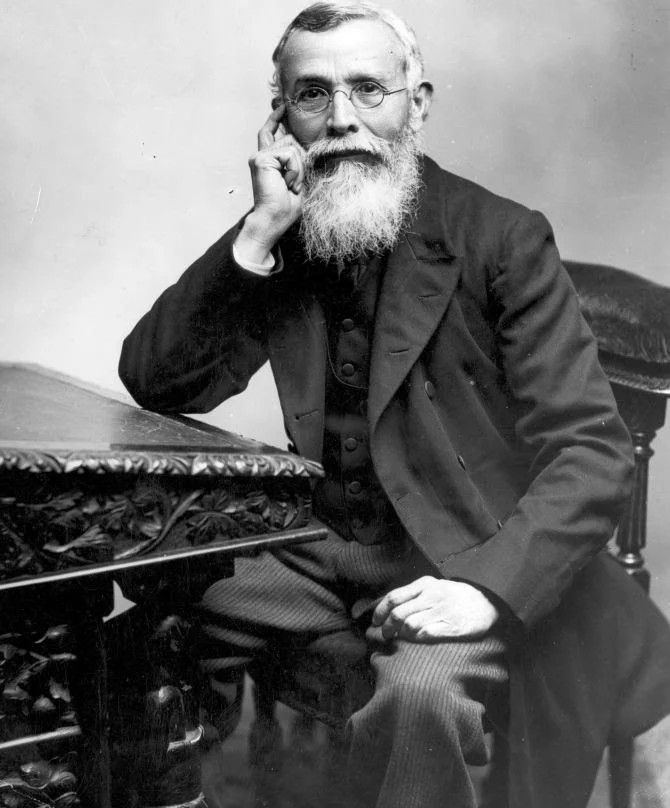
Dadabhai Naoroji was one of the most influential figures in India’s freedom movement. Known as the “Grand Old Man of India,” he played a pioneering role in shaping the political, economic, and intellectual foundations of Indian nationalism. Born on September 4, 1825, in Navsari, Gujarat, Dadabhai Naoroji emerged as a visionary leader whose ideas and actions continue to inspire generations. His contributions to education, politics, and economic thought made him a central figure in the early phase of India’s struggle for independence.
Educated at Elphinstone College in Bombay, Dadabhai Naoroji was among the first Indians to become a professor under British rule. His academic excellence and commitment to reform earned him respect across communities. He believed that education was the key to empowering Indians and breaking the cycle of colonial domination. His early work focused on promoting rational thinking, social reform, and intellectual development among Indians, especially within the Parsi community.
Dadabhai Naoroji’s political journey began in the 1850s when he moved to London to represent Indian business interests. However, his focus quickly shifted to political advocacy. He founded the London Indian Society and later the East India Association, both aimed at informing British lawmakers about the realities of colonial rule in India. These organizations became platforms for raising awareness about India’s economic and political conditions and laid the groundwork for future nationalist movements.
In 1892, Dadabhai Naoroji made history by becoming the first Indian elected to the British House of Commons. Representing the Finsbury Central constituency, he used his position to speak out against the injustices faced by Indians under British rule. His election was a landmark moment, symbolizing the entry of Indian voices into global political discourse. As a Member of Parliament, Dadabhai Naoroji advocated for Indian rights, economic justice, and political representation. He challenged colonial policies and demanded reforms that would benefit the Indian population.
One of Dadabhai Naoroji’s most significant contributions was his economic critique of British colonialism. Through extensive research and analysis, he developed the “Drain Theory,” which explained how wealth was systematically transferred from India to Britain, leaving India impoverished. He argued that British economic policies were designed to benefit Britain at the expense of India. This theory was presented in his book Poverty and Un-British Rule in India, published in 1901. The Drain Theory became a powerful tool for Indian nationalists and helped build the intellectual foundation for the demand for self-rule.
Dadabhai Naoroji was also one of the founding members of the Indian National Congress, established in 1885. He served as its president three times—in 1886, 1893, and 1906. Under his leadership, the Congress evolved from a platform for dialogue to a movement demanding political rights and self-governance. In his presidential addresses, Dadabhai Naoroji emphasized the need for Swaraj, or self-rule, and called for greater Indian participation in administration. His moderate approach focused on constitutional methods and dialogue, but his ideas laid the groundwork for more assertive phases of the freedom movement.
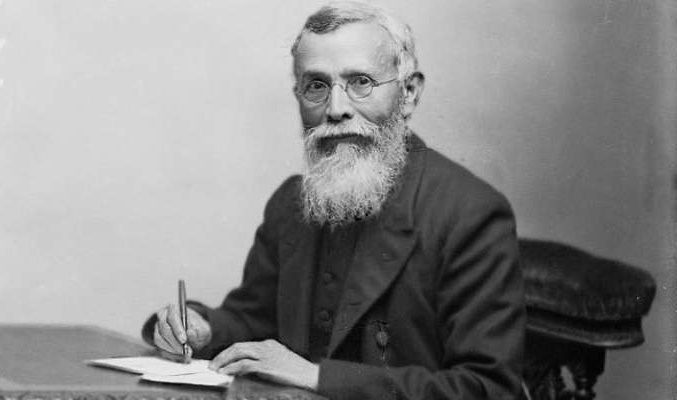
Throughout his life, Dadabhai Naoroji remained committed to the principles of justice, equality, and national pride. He mentored future leaders like Gopal Krishna Gokhale and Bal Gangadhar Tilak, influencing the direction of the Indian independence movement. His emphasis on education, economic analysis, and political engagement helped shape the strategies adopted by later freedom fighters, including Mahatma Gandhi.
Dadabhai Naoroji passed away on June 30, 1917, in Bombay. His death marked the end of an era, but his legacy lived on. He is remembered not just as a politician or economist, but as a pioneer who gave India its voice on the global stage. His life is a testament to the power of intellect, integrity, and unwavering commitment to justice. Today, Dadabhai Naoroji’s ideas continue to resonate in modern India, reminding us that freedom is not just won on battlefields—it is built in classrooms, debated in parliaments, and defended with facts..
Dadabhai Naoroji’s contributions to Indian history are profound and enduring. His work laid the foundation for economic nationalism and inspired a generation of leaders to challenge colonial rule with reason and dignity. His election to the British Parliament was not just a personal achievement—it was a symbol of India’s potential and determination. His Drain Theory exposed the economic exploitation of India and gave the freedom movement a powerful intellectual weapon.
In remembering Dadabhai Naoroji, we honor a man who believed in the power of truth, the importance of education, and the necessity of justice. His legacy is not confined to history books—it lives in the values that continue to guide India’s democratic journey. Dadabhai Naoroji remains a beacon of hope, a symbol of resilience, and a reminder that one voice, when guided by conviction and clarity, can change the course of a nation.
Table of Contents
🎤 Dadabhai Naoroji’s 1906 Calcutta Speech: The Birth of Swaraj
Location: Calcutta (now Kolkata), British India
Event: 22nd Session of the Indian National Congress
Role: Dadabhai Naoroji presided as Congress President for the third time
Date: December 26–29, 1906
👥 Crowd
The session drew over 1,500 delegates from across India, including prominent leaders like Gopal Krishna Gokhale, Bal Gangadhar Tilak, and Lala Lajpat Rai. The atmosphere was charged with emotion and urgency, as the nation grappled with the aftermath of the Partition of Bengal and rising nationalist sentiment.
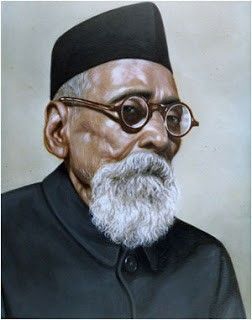
🎯 Motive of the Speech
Dadabhai Naoroji’s motive was clear and historic:
- To declare Swaraj (self-rule) as the Congress’s ultimate goal
- To unite moderates and extremists under a shared vision
- To demand Indian representation in governance
- To expose the moral and economic failures of British colonialism
🗣️ Dadabhai Naoroji’s Speech
“Self-government is the only and chief remedy. In self-government lies our hope, strength, and freedom. We do not ask for favours—we demand justice. We claim our rights as British subjects. We want equality, not charity.”
This declaration marked the first official use of the term “Swaraj” in Congress proceedings. It was a turning point—transforming the Congress from a reformist platform into a nationalist movement.
🔥 Emotional Undercurrent
Dadabhai Naoroji, then 81, stood frail but firm. His voice was steady, his words deliberate. He didn’t speak with fire—he spoke with faith. Faith in India’s soul. Faith in the power of truth. Faith in the youth who would carry the torch forward.
His speech didn’t just move the crowd—it moved history.
🏁 Final Reflection
The 1906 Calcutta speech was Dadabhai Naoroji’s final public roar. It gave India its political vocabulary, its moral compass, and its first clear goal: Swaraj.
He wasn’t just addressing delegates. He was addressing generations.
And in that moment, the Grand Old Man of India became the first architect of Indian self-rule.
You can read the full speech in the archived collection Speeches and Writings of Dadabhai Naoroji or explore the rare book version on Indian Culture.
📍 1825 — The Birth of a Mind That Would Challenge an Empire
🌱 A Quiet Beginning in Navsari
On September 4, 1825, in the serene town of Navsari, nestled in the Bombay Presidency of British India (now Gujarat), a child was born into a modest Parsi family. The world didn’t know it yet, but this child would one day stand in the heart of the British Empire and speak for millions who had no voice.
His name was Dadabhai Naoroji.
There were no grand celebrations. No signs in the sky. Just the quiet arrival of a boy who would grow into one of the most respected minds of the 19th century. A boy who would later be called the “Grand Old Man of India.”
🧬 Roots of Reform
Dadabhai Naoroji’s early life was shaped by the values of his Parsi heritage—education, integrity, and service. His family wasn’t wealthy, but they were rich in ideals. They believed in the power of knowledge and the dignity of labor. These values would become the foundation of his life’s work.
Growing up in a colonized land, Dadabhai Naoroji witnessed the contradictions of British rule. He saw the railways and schools, but also the poverty and injustice. He saw the English language taught in classrooms, but Indian voices silenced in courts. These early impressions didn’t make him bitter—they made him determined.
📚 A Mind That Refused to Settle
From a young age, Dadabhai Naoroji showed an extraordinary thirst for learning. He wasn’t content with memorizing facts—he wanted to understand systems. He didn’t just ask “what,” he asked “why.” This curiosity led him to Elphinstone College in Bombay, where he would later become one of the first Indian professors under British rule.
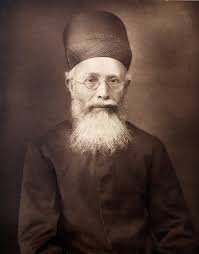
But even before that, the seeds of his intellectual rebellion were already growing. He questioned inequality. He challenged blind tradition. He believed that Indians deserved not just education, but empowerment.
🌍 A Birth That Meant More Than a Date
To say that Dadabhai Naoroji was born in 1825 is to state a fact. But to understand what that birth meant is to grasp the beginning of a revolution in thought.
He wasn’t born into royalty. He wasn’t born into power. He was born into a time when India was being drained of its wealth, its dignity, and its voice. And yet, from that very soil, he rose—not with weapons, but with wisdom.
His birth marked the arrival of a new kind of leader. One who would fight not with swords, but with speeches. Not with anger, but with analysis. Not with rebellion, but with reason.
🔥 The Spark That Would Light a Nation
Looking back, it’s easy to trace the arc of Dadabhai Naoroji’s life to that quiet morning in Navsari. The boy born in 1825 would go on to:
- Become the first Indian Member of British Parliament
- Develop the Drain Theory, exposing the economic exploitation of India
- Found the East India Association and help establish the Indian National Congress
- Mentor future leaders like Gopal Krishna Gokhale and Mahatma Gandhi
- Inspire a generation to believe that freedom begins with awareness
But all of that began with a birth. A name. A promise.
🕊️ Final Reflection
In the grand timeline of India’s freedom struggle, 1825 may seem like a distant dot. But it was the beginning of a mind that would challenge the might of an empire. Dadabhai Naoroji’s birth wasn’t just the arrival of a child—it was the quiet start of a storm.
He didn’t come into the world with banners or fanfare. But he left it with a legacy that still shapes how India sees itself.
In every classroom that teaches justice, in every debate that demands fairness, in every citizen who questions power—there is a little of that boy from Navsari.
And that is why September 4, 1825, is not just a date. It’s a declaration.
📍 1845–1855 — The Decade Dadabhai Naoroji Became a Voice of Enlightenment
🎓 A Professor Before His Time
In 1845, at just 20 years old, Dadabhai Naoroji broke a barrier few dared to approach. He became a professor of mathematics and natural philosophy at Elphinstone College, Bombay. This wasn’t just a job—it was a revolution in robes.
At a time when British India rarely allowed Indians into positions of intellectual authority, Dadabhai Naoroji stood at the front of a classroom—not as a colonial subject, but as a scholar. He wasn’t just teaching equations and theories. He was teaching possibility.
His presence alone challenged the colonial mindset. An Indian professor, fluent in logic, science, and reason, was now shaping young minds. And those minds would go on to shape India.
📚 Education as Empowerment
Dadabhai Naoroji didn’t see education as a privilege. He saw it as a right. And he didn’t limit that right to the elite.
He believed that women, marginalized communities, and the poor deserved the same access to knowledge as anyone else. This belief wasn’t popular. It wasn’t safe. But it was necessary.
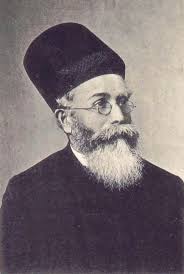
He began advocating for education reform—not just in policy, but in practice. He pushed for inclusive classrooms. He supported vernacular education. He encouraged critical thinking over rote memorization.
To Dadabhai Naoroji, education wasn’t about producing clerks for the empire. It was about producing citizens for a free India.
🧠 Teaching with Purpose
Inside the lecture halls of Elphinstone College, Dadabhai Naoroji wasn’t just a professor. He was a mentor, a challenger, a guide.
He taught mathematics with precision. He taught natural philosophy with wonder. But above all, he taught his students to question.
Why is India poor despite its resources?
Why are Indians denied positions of power?
Why does the British system reward obedience over brilliance?
These weren’t exam questions. They were seeds of rebellion—planted gently, but deliberately.
🕊️ Reform Beyond the Classroom
Dadabhai Naoroji’s impact wasn’t confined to college walls. He stepped into society with the same clarity and courage.
He co-founded the Rahnumai Mazdayasan Sabha, a reformist organization aimed at modernizing Parsi social practices. He spoke against blind tradition. He supported widow remarriage. He encouraged rational debate.
His reform wasn’t loud. It was layered. He didn’t attack culture—he refined it.
And through it all, he remained deeply rooted in Indian values. His modernism wasn’t borrowed—it was built.
🌍 A Decade That Defined a Century
Between 1845 and 1855, Dadabhai Naoroji laid the foundation for everything he would later become:
- A professor who proved that Indians could lead in knowledge
- A reformer who believed in dignity for all
- A visionary who saw education as the first step toward freedom
- A mentor who shaped minds that would one day shape India
This decade wasn’t just a chapter in his life. It was the blueprint of his legacy.
🔥 The Emotional Undercurrent
Imagine the courage it took.
To walk into a British-run institution and teach.
To speak of equality in a society built on hierarchy.
To advocate for women’s education when silence was expected.
To challenge colonial narratives with nothing but truth.
Dadabhai Naoroji didn’t shout. He didn’t rebel. He reasoned. And in doing so, he lit a fire that would burn for generations.
🏁 Final Reflection
The years 1845 to 1855 weren’t marked by protests or politics. They were marked by preparation.
Dadabhai Naoroji was building something deeper than movements. He was building minds.
And in every student he taught, every reform he proposed, every idea he defended—India grew stronger.
This wasn’t just a professor’s decade. It was a nation’s awakening.
📍 1848 — Dadabhai Naoroji and the Birth of Intellectual Revolution in Bombay
🕰️ A Nation in Silence, A Mind in Motion
In 1848, India was still under the heavy shadow of British colonial rule. The streets of Bombay bustled with trade, but the minds of its people were shackled by ignorance, superstition, and systemic exclusion. Education was a privilege of the elite, and rational thought was often drowned by blind tradition.
But in the heart of this silence, one man was thinking differently.
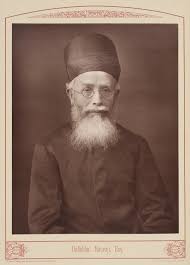
Dadabhai Naoroji, already a respected professor at Elphinstone College, saw the need for something deeper than lectures—he saw the need for a movement. A movement that would awaken minds, challenge dogma, and prepare Indians to think, question, and lead.
📚 The Birth of the Literary and Scientific Society of Bombay
In 1848, Dadabhai Naoroji founded the Literary and Scientific Society of Bombay. It wasn’t just an organization—it was a declaration. A declaration that Indians were ready to engage with modern ideas, scientific reasoning, and intellectual debate.
This society became a platform for promoting modern education, rational thought, and social reform. It brought together thinkers, students, reformers, and dreamers—people who believed that India’s future depended not just on freedom from British rule, but on freedom from mental stagnation.
Dadabhai Naoroji didn’t just create a society. He created a space where minds could breathe.
🔍 Why This Society Mattered
The Literary and Scientific Society of Bombay was revolutionary for several reasons:
- It encouraged critical thinking in an era dominated by rote learning.
- It promoted scientific inquiry among Indians, challenging colonial stereotypes of intellectual inferiority.
- It supported literary exploration, helping Indians rediscover their own cultural richness while engaging with global ideas.
- It welcomed diverse voices, including reformers from different communities, fostering unity through intellect.
This wasn’t just about books and lectures. It was about building a new kind of Indian—one who could reason, reflect, and resist.
🧠 Dadabhai Naoroji’s Vision: Education as Liberation
Dadabhai Naoroji believed that education was the first step toward freedom. Not just political freedom, but personal, social, and intellectual liberation.
He saw how colonial education systems were designed to produce obedient clerks—not visionary leaders. Through the Literary and Scientific Society, he challenged that model. He wanted Indians to learn not just English, but ethics. Not just science, but self-respect.
His vision was clear: An educated India would be an empowered India.
🗣️ Promoting Rational Thought in a Traditional Society
One of the boldest aspects of Dadabhai Naoroji’s initiative was his push for rational thought. In a society where blind faith often overpowered reason, he encouraged debate, dialogue, and dissent.
The society hosted discussions on topics like:
- The role of women in education
- The importance of scientific temper
- The need for social reform in religious practices
- The economic condition of India under British rule
These weren’t just academic exercises. They were acts of courage.
Dadabhai Naoroji was telling Indians: You have the right to think. You have the right to question. You have the right to change.
🌍 A Ripple That Became a Wave
The impact of the Literary and Scientific Society of Bombay went far beyond its meetings. It inspired other reformist groups across India. It influenced future leaders like Gopal Krishna Gokhale and Mahadev Govind Ranade. It laid the intellectual foundation for the Indian National Congress, which Dadabhai Naoroji would later help lead.
This society proved that ideas can be weapons. That books can be banners. That reason can be rebellion.
🔥 Emotional Undercurrent: A Man Ahead of His Time
Imagine the courage it took in 1848 to promote modern education in a colonized land. To speak of science when superstition ruled. To advocate for women’s education when silence was expected. To challenge tradition not with anger, but with awareness.
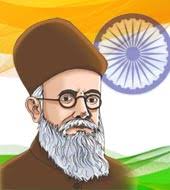
Dadabhai Naoroji wasn’t just a reformer. He was a quiet revolutionary. His strength wasn’t in volume—it was in vision.
He didn’t fight with fists. He fought with facts. And he won hearts.
🏁 Final Reflection
The year 1848 wasn’t marked by protests or revolts. It was marked by a seed. A seed planted by Dadabhai Naoroji in the soil of Bombay—a seed of thought, truth, and transformation.
The Literary and Scientific Society of Bombay was more than an institution. It was a mirror held up to India, asking: Are we ready to think for ourselves?
And thanks to Dadabhai Naoroji, the answer was yes.
📍 1851 — Dadabhai Naoroji and the Birth of Reform: Rahnumai Mazdayasan Sabha
🕰️ A Time of Tradition and Tension
In the mid-19th century, India was a land of contradictions. Under British rule, modern institutions were emerging, yet society remained deeply rooted in rigid customs. Among the Parsi community—one of India’s most progressive yet tradition-bound groups—there was growing tension between inherited rituals and the need for reform.
It was in this climate, in the year 1851, that Dadabhai Naoroji, already a respected educator and intellectual, took a bold step. He co-founded the Rahnumai Mazdayasan Sabha—a reformist organization aimed at modernizing Parsi social practices and promoting progressive values.
This wasn’t just a cultural initiative. It was a declaration of courage. A call to awaken. A movement that would ripple far beyond the Parsi community.
🌱 What Is the Rahnumai Mazdayasan Sabha?
The name itself carries weight. “Rahnumai” means guidance. “Mazdayasan” refers to followers of Ahura Mazda, the supreme god in Zoroastrianism. “Sabha” means assembly.
Together, the Rahnumai Mazdayasan Sabha was a Guiding Assembly for Zoroastrians—a platform to rethink, reform, and revive the spirit of the faith in a modern context.
Its goals were clear:
- Promote rational interpretation of religious texts
- Encourage education for women and youth
- Challenge superstitions and outdated customs
- Support social justice and equality within the community
And at the heart of it stood Dadabhai Naoroji, a man who believed that reform wasn’t rebellion—it was responsibility.
🧠 Dadabhai Naoroji’s Role: Reform with Respect
Dadabhai Naoroji didn’t attack tradition. He engaged with it. He understood the emotional and spiritual depth of Parsi customs, but he also saw where they conflicted with reason and progress.
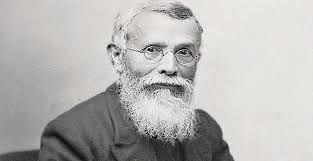
As a co-founder, he brought clarity, compassion, and conviction to the Sabha’s mission. He encouraged open dialogue, scholarly debate, and community participation. He believed that faith should evolve, not erode.
His leadership wasn’t loud—it was layered. He didn’t impose change. He inspired it.
📚 Education as the First Reform
One of the Sabha’s earliest and strongest campaigns was for education—especially for Parsi girls, who were often denied formal schooling.
Dadabhai Naoroji argued that ignorance was the real enemy of tradition. That educated women would strengthen families, not weaken them. That knowledge was not a threat to faith—it was its ally.
Under his influence, the Sabha began supporting schools, publishing rational literature, and encouraging parents to send their daughters to class. This was revolutionary. And it worked.
🔍 Challenging Superstition and Social Injustice
The Rahnumai Mazdayasan Sabha also took on superstitions that had crept into religious practice—rituals that had no scriptural basis but were followed blindly.
Dadabhai Naoroji led efforts to re-examine texts, consult scholars, and promote ethical living over ritualistic rigidity. He believed that religion should uplift, not oppress.
He also spoke against social injustices within the community—like caste-like divisions, exclusionary practices, and resistance to widow remarriage. His voice was firm, but respectful. He didn’t shame people—he showed them a better way.
🌍 A Model for Broader Indian Reform
Though focused on the Parsi community, the Sabha’s impact was felt across India. It became a model for reformist movements in Hindu, Muslim, and Sikh communities.
Dadabhai Naoroji’s approach—reasoned reform rooted in cultural respect—inspired leaders like Ishwar Chandra Vidyasagar, Jyotirao Phule, and later, Mahatma Gandhi.
The Sabha proved that change doesn’t have to be violent. That tradition and progress can coexist. That community-led reform is more powerful than colonial imposition.
🔥 Emotional Undercurrent: Reform as Patriotism
For Dadabhai Naoroji, reform wasn’t just about religion—it was about nation-building.
He believed that a strong India needed strong communities. That social progress was the foundation of political freedom. That if Indians could reform themselves, they could resist colonial control with dignity and unity.
His work with the Rahnumai Mazdayasan Sabha was an act of patriotism. A quiet revolution. A blueprint for future movements.
🏁 Final Reflection
The year 1851 marked a turning point—not just in Parsi history, but in India’s journey toward modernity.
By co-founding the Rahnumai Mazdayasan Sabha, Dadabhai Naoroji showed that reform doesn’t mean rejection. It means renewal. That faith can be a force for progress. That tradition can evolve without losing its soul.
He didn’t just change rituals. He changed mindsets.
And in doing so, he laid one more brick in the foundation of a free, just, and enlightened India.
📍 1855–1869 — Dadabhai Naoroji in London: The Voice of India in the Heart of Empire
🌍 A Journey Across Oceans, A Mission Beyond Borders
In 1855, Dadabhai Naoroji left the shores of Bombay and sailed to London, not as a politician or protestor, but as a business representative of Cama & Co.—a Parsi trading firm. He was the first Indian to hold such a position in Britain. But what began as a commercial assignment soon evolved into something far greater.
London, the capital of the British Empire, was the nerve center of colonial power. For most Indians, it was a distant, unreachable world. But for Dadabhai Naoroji, it became a battlefield of ideas. He realized that to challenge colonial injustice, he had to speak where the empire listened—to confront it not with rebellion, but with reason.
🏛️ Founding the London Indian Society: A Platform for Indian Voices
In 1865, Dadabhai Naoroji co-founded the London Indian Society, the first political organization in Britain established by Indians. Its purpose was revolutionary: to promote Indian interests in Britain, educate the British public about Indian affairs, and advocate for political and economic justice.
The society brought together Indian students, professionals, and sympathizers who believed that India’s voice deserved to be heard in the corridors of British power. It organized lectures, published pamphlets, and engaged with British MPs and intellectuals.
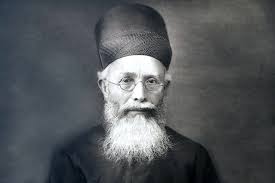
For the first time, India had a seat at the table in London—and Dadabhai Naoroji was its most articulate representative.
📣 Speaking Truth to Power: Early Economic Critiques
While in London, Dadabhai Naoroji began publishing sharp critiques of British economic policies in India. He wasn’t just expressing opinion—he was presenting data, logic, and moral arguments.
He argued that British rule was not a civilizing mission, but a systematic extraction of wealth. He highlighted how India exported raw materials, paid for British administration, and received little in return. His writings laid the foundation for what would later become his famous Drain Theory.
In 1867, he boldly declared that India was being impoverished by British economic exploitation, and that the so-called benefits of empire were a myth. These were not easy truths to speak in the heart of the empire—but Dadabhai Naoroji spoke them anyway.
📚 The Scholar-Activist Emerges
During this period, Dadabhai Naoroji also contributed to journals like The Indian Economist, where he dissected colonial budgets, trade deficits, and taxation policies. He questioned the morality of British governance and demanded accountability.
He wasn’t just writing for Indians—he was writing for the British conscience. He believed that if the people of Britain truly understood the suffering of Indians, they would demand change. His approach was non-confrontational but uncompromising—a blend of intellect and empathy.
🤝 Building Bridges, Not Walls
Dadabhai Naoroji’s time in London was also marked by his efforts to build alliances. He engaged with British liberals, reformers, and members of Parliament. He didn’t see the British people as enemies—he saw them as potential allies in the fight for justice.
This strategy would later help him win a seat in the British Parliament. But even in these early years, he was laying the groundwork for Indo-British dialogue, rooted in mutual respect and shared values.
🔥 Emotional Undercurrent: Alone, But Not Silent
Imagine the isolation.
An Indian in Victorian London. A brown man in a white empire. A voice of dissent in a city that profited from silence.
But Dadabhai Naoroji didn’t flinch. He walked into elite clubs, academic halls, and political forums—not as a subject, but as a speaker. He wore his identity with pride. He carried India in his voice.
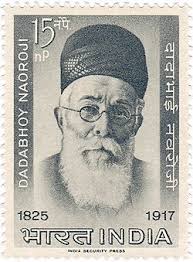
He wasn’t just representing a company. He was representing a civilization.
🏁 Final Reflection
The years 1855 to 1869 were more than a personal journey for Dadabhai Naoroji—they were a national awakening in exile.
By founding the London Indian Society, he gave India a political presence in Britain. By critiquing British economic policies, he exposed the truth behind colonial rule. And by standing firm in a foreign land, he proved that India’s intellect could challenge the empire’s arrogance.
This was the decade when Dadabhai Naoroji became more than a professor or reformer. He became a statesman of the soul, a pioneer of economic nationalism, and the first Indian to make the empire listen.
And he did it not with anger, but with analysis. Not with rebellion, but with reason. Not with fear, but with faith—in India, in justice, and in the power of truth.
📍 1874 — Dadabhai Naoroji: From Statesman to Strategist in Baroda
🕰️ A New Chapter Begins
In the year 1874, Dadabhai Naoroji—already a respected scholar, reformer, and economic thinker—was offered a role that would test his leadership in a new dimension. He was appointed Diwan of Baroda, the chief minister and administrator of one of India’s most progressive princely states.
This wasn’t just a ceremonial title. It was a position of real power, real responsibility, and real opportunity. For the first time, Dadabhai Naoroji had the chance to implement the ideas he had long advocated—not just in theory, but in governance.
🏛️ What It Meant to Be Diwan of Baroda
The role of Diwan was equivalent to a modern-day Prime Minister of a princely state. Baroda, under the Gaekwad dynasty, was known for its openness to reform and education. Appointing Dadabhai Naoroji as Diwan was a bold move—one that signaled a commitment to progressive administration, economic justice, and inclusive governance.
As Diwan, Dadabhai Naoroji was responsible for:
- Overseeing the state’s finances
- Advising the Maharaja on policy and law
- Promoting education and infrastructure
- Ensuring justice and welfare for the people
It was a role that demanded intellect, integrity, and vision. And Dadabhai Naoroji brought all three.
📚 Governance Rooted in Ethics
Dadabhai Naoroji didn’t treat administration as a power game. He treated it as a moral duty. His governance style was marked by transparency, efficiency, and compassion.
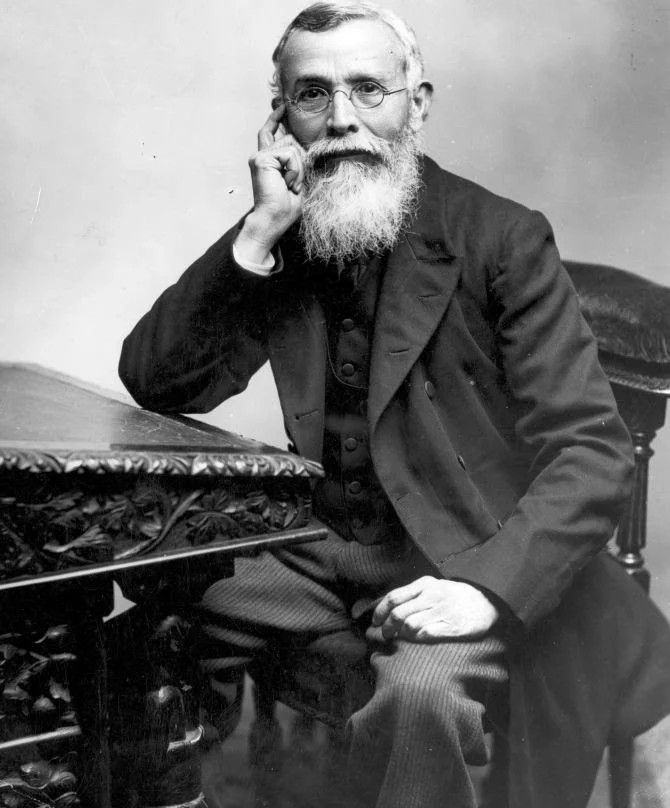
He focused on:
- Educational reform, especially for girls and marginalized communities
- Economic planning that prioritized local development over royal extravagance
- Judicial fairness, ensuring that laws served the people, not just the elite
- Public accountability, setting standards for ethical leadership
His tenure was short, but impactful. He showed that Indian administrators could govern with wisdom and dignity, even within the constraints of colonial oversight.
🔍 Why Dadabhai Naoroji Accepted the Role
For a man deeply involved in political advocacy, accepting a princely appointment might seem contradictory. But for Dadabhai Naoroji, it was strategic.
He believed that real change required real experience. That to challenge British policies effectively, he needed firsthand knowledge of governance. Baroda gave him that platform.
It also allowed him to demonstrate Indian capability—to prove that Indians were not just thinkers, but doers. That they could manage states, balance budgets, and uplift societies.
His time as Diwan became a living argument against colonial prejudice.
🌍 Resignation: A Return to the Larger Fight
Despite his success in Baroda, Dadabhai Naoroji made a difficult decision. He resigned from his post and returned to London to continue his political advocacy.
Why?
Because he knew that the battle for India’s future wasn’t just in Baroda—it was in Britain. In Parliament. In public opinion. In policy papers and economic debates.
He had tasted governance. Now, he wanted to challenge the empire itself.
His resignation wasn’t a retreat. It was a recalibration. A shift from local reform to global resistance.
🔥 Emotional Undercurrent: Leadership with Sacrifice
Imagine the weight of that decision.
To leave a respected position. To walk away from power. To choose uncertainty over comfort.
Dadabhai Naoroji didn’t chase titles. He chased truth. He didn’t serve for prestige. He served for purpose.
His resignation was a reminder that true leadership isn’t about holding office—it’s about holding conviction.
🧠 Lessons from Baroda
Dadabhai Naoroji’s time as Diwan taught him—and the nation—several powerful lessons:
- That Indian minds were fully capable of ethical governance
- That economic planning must serve the people, not just the rulers
- That education is the cornerstone of progress
- That political advocacy is stronger when backed by administrative experience
These lessons would shape his future writings, speeches, and strategies. They would echo in his Drain Theory, his parliamentary debates, and his mentorship of future leaders.
🏁 Final Reflection
The year 1874 was more than a career milestone for Dadabhai Naoroji. It was a moment of transformation.
As Diwan of Baroda, he proved that Indian leadership could be principled, progressive, and powerful. As a reformer, he showed that governance could be a tool for justice. And as a patriot, he reminded India that service to the people is the highest form of resistance.
His resignation wasn’t the end of his journey. It was the beginning of his global mission—to make India’s voice heard in the heart of the empire.
And through it all, he remained what he had always been: a man of intellect, integrity, and indomitable spirit.
📍 1875–1885 — Dadabhai Naoroji’s Decade of Defiance: The Birth of the Drain Theory
🕰️ A Voice for India in the Heart of Empire
In 1875, Dadabhai Naoroji took another bold step in his mission to make India’s suffering visible to the world. After resigning as Diwan of Baroda, he returned to London, not to retreat—but to resist. He understood that the real decisions about India’s fate were being made in British drawing rooms, parliamentary debates, and economic councils.
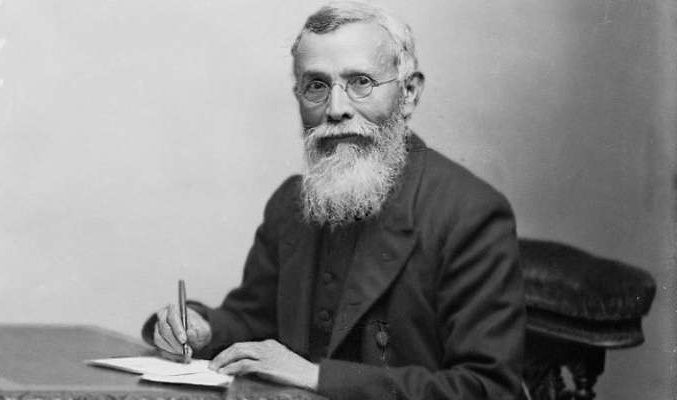
So he founded the East India Association—a pioneering organization that gave India a political presence in Britain. It wasn’t just a society. It was a strategy. A way to educate British lawmakers, challenge colonial narratives, and build a bridge between Indian voices and British ears.
🏛️ The East India Association: India’s First Political Lobby Abroad
The East India Association, established in London, was the first organized attempt by Indians to influence British policy from within the empire’s capital. Dadabhai Naoroji envisioned it as a platform where Indian grievances could be presented with dignity, data, and diplomacy.
The association hosted lectures, published pamphlets, and engaged directly with British politicians. It focused on:
- Economic injustice under colonial rule
- Administrative exclusion of Indians from governance
- Educational and social reforms needed in India
- Trade policies that disadvantaged Indian industries
Dadabhai Naoroji wasn’t just speaking to power—he was educating it. He believed that if the British public understood the truth, they would demand change.
📚 The Birth of the Drain Theory
During this decade, Dadabhai Naoroji began articulating what would become his most famous and impactful idea: the Drain Theory.
He argued that British economic policies were systematically draining India’s wealth. That India was not poor by nature, but impoverished by design. That colonial rule was not a partnership—it was a pipeline of extraction.
He backed his claims with statistics, budget analyses, and trade data. He showed how:
- India paid for British military expenses
- Indian resources were exported without fair compensation
- British officers were paid from Indian revenues
- Profits from Indian industries were repatriated to Britain
This wasn’t just economic critique. It was economic resistance. Dadabhai Naoroji turned numbers into a weapon of truth.
🔍 Why This Work Mattered
The Drain Theory wasn’t just a theory—it was a revelation. It gave Indian nationalists a framework to understand their poverty. It shifted the conversation from charity to justice. It exposed the structural exploitation behind colonial rule.
For the first time, Indians could point to facts—not just feelings—to explain their suffering. And British lawmakers could no longer claim ignorance.
Dadabhai Naoroji’s work laid the foundation for future demands of Swaraj (self-rule), economic independence, and political representation.
🌍 Building a Global Network of Support
Through the East India Association, Dadabhai Naoroji also built relationships with British liberals, reformers, and intellectuals. He didn’t isolate India—he internationalized its struggle.
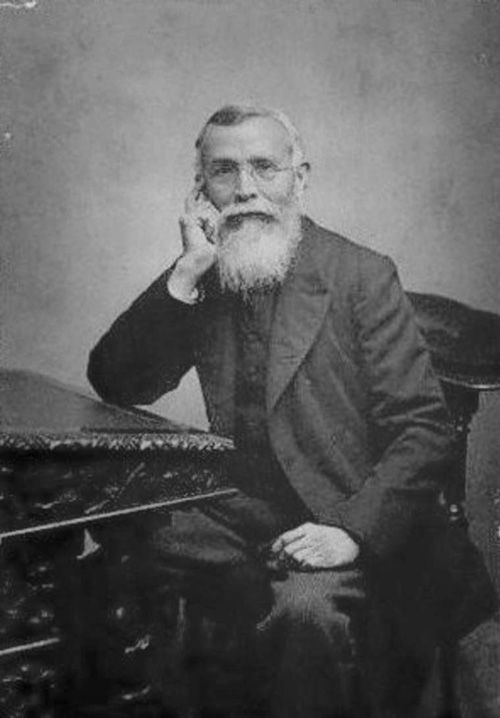
He believed in dialogue over division, reason over rage, and truth over propaganda. His approach earned respect, even among those who disagreed with him.
This network would later help him become the first Indian elected to the British Parliament in 1892. But the seeds were planted in this decade.
🔥 Emotional Undercurrent: A Lone Voice, A Loud Impact
Imagine the courage it took.
To stand in London, surrounded by colonial pride, and say: “You are draining my country.”
To speak not with bitterness, but with brilliance.
To challenge not with rebellion, but with reason.
To fight not for revenge, but for reform.
Dadabhai Naoroji wasn’t just a critic. He was a conscience.
🧠 Legacy of the Decade
Between 1875 and 1885, Dadabhai Naoroji:
- Founded the East India Association, giving India a voice in Britain
- Developed the Drain Theory, exposing colonial economic exploitation
- Educated British lawmakers, shifting public opinion
- Inspired Indian nationalists, providing intellectual tools for resistance
- Built alliances, preparing for future political breakthroughs
This decade wasn’t just about ideas. It was about impact.
🏁 Final Reflection
The years 1875 to 1885 marked a turning point in India’s freedom movement—not through protests, but through proof.
Dadabhai Naoroji, through the East India Association and the Drain Theory, gave India its first global voice. He showed that truth travels, that data defends, and that dignity demands justice.
He didn’t just speak for India. He spoke for every colonized nation that needed a language of resistance.
And in doing so, he became not just the Grand Old Man of India, but the first economist of freedom.
Sources:
Vajiram & Ravi – Biography and Drain Theory
📍 1886 — Dadabhai Naoroji’s Rise to National Leadership: A Voice for Reform
🕰️ A Nation Begins to Organize
By the mid-1880s, India’s educated elite had begun to realize that scattered voices of dissent were not enough. The need for a unified platform to express Indian aspirations was urgent. In 1885, the Indian National Congress (INC) was born—a political body that would soon become the backbone of India’s freedom movement.
Just one year later, in 1886, Dadabhai Naoroji was elected as the President of the Indian National Congress. His election wasn’t just symbolic—it was strategic. He brought with him decades of experience, global credibility, and a reputation for reasoned resistance.
🏛️ Why Dadabhai Naoroji Was Chosen
Dadabhai Naoroji was not a fiery orator. He was a calm, calculated thinker. His work in London—founding the East India Association and developing the Drain Theory—had already made him a respected figure among both Indians and British liberals.
His presidency signaled a shift: from emotional protest to intellectual advocacy. From scattered demands to structured reform. From colonial silence to constitutional dialogue.
The Congress needed a leader who could speak to the British in their own language—of law, logic, and liberalism. Dadabhai Naoroji was that leader.
📣 Advocating for Constitutional Reforms
As President, Dadabhai Naoroji emphasized the need for constitutional reforms. He didn’t call for revolution—he called for representation. He believed that Indians deserved a voice in the legislative process, in the civil services, and in the decisions that affected their lives.
He demanded:
- Increased Indian participation in the Indian Civil Service
- Greater transparency in British administrative policies
- Legal reforms to protect Indian rights
- Budgetary accountability to prevent economic exploitation
His approach was methodical. He didn’t just criticize—he proposed alternatives. He didn’t just protest—he persuaded.
🧠 Indian Representation: A Moral and Political Demand
Dadabhai Naoroji’s presidency was rooted in the belief that India was not a colony to be ruled—it was a nation to be heard. He argued that Indian representation in governance was not a favor—it was a right.
He used his platform to highlight how decisions made in London affected millions in India. He showed how lack of representation led to unjust laws, unfair taxation, and economic drain.
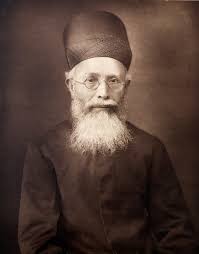
His speeches were not confrontational—they were compelling. He appealed to British values of fairness and democracy, asking: If Britain believes in liberty, why deny it to India?
🔍 Impact on the Congress and the Freedom Movement
Dadabhai Naoroji’s presidency helped shape the Congress into a serious political body. Under his leadership:
- The Congress adopted a moderate tone, focusing on dialogue and reform
- It gained credibility among British lawmakers, opening doors for future negotiations
- It began to attract educated Indians, who saw politics as a path to progress
- It laid the foundation for future demands of self-rule, which would grow stronger in the decades to come
His leadership style became a model for early Congress presidents—firm, respectful, and rooted in reason.
🌍 A Global Statesman with a National Heart
Even while leading the Congress, Dadabhai Naoroji remained active in Britain. He continued to publish papers, engage with MPs, and advocate for Indian rights. His dual presence—in India and in Britain—was a strategic asset.
He wasn’t just a national leader. He was a global ambassador for Indian dignity.
🔥 Emotional Undercurrent: Leadership with Grace
Imagine the weight of that moment.
An Indian, elected to lead a national political body, standing before a crowd of hopeful citizens, saying: “We will not beg. We will reason. We will rise.”
Dadabhai Naoroji didn’t shout. He didn’t threaten. He led with grace. With intellect. With unwavering belief in India’s potential.
His presidency was a promise—that India would no longer be spoken for. It would speak for itself.
🏁 Final Reflection
The year 1886 was more than a political milestone. It was a moment of awakening.
Dadabhai Naoroji, as President of the Indian National Congress, gave India its first taste of organized political leadership. He showed that reform was possible. That representation was necessary. That dignity was non-negotiable.
His legacy lives on—not just in history books, but in every democratic institution that values voice over violence, reason over rage, and justice over domination.
He didn’t just lead a party. He led a principle.
Sources:
Bing Search – INC Presidency and Reforms
Vajiram & Ravi – Dadabhai Naoroji Biography
📍 1892–1895 — Dadabhai Naoroji in Parliament: India’s Voice in the Empire
🕰️ A Historic Victory in Finsbury Central
In 1892, Dadabhai Naoroji shattered a colonial ceiling. He was elected as a Member of Parliament (MP) for Finsbury Central in London, representing the Liberal Party. This victory made him the first Indian to serve in the British House of Commons, a feat that resonated across continents.
His election wasn’t just a personal achievement—it was a national moment. For millions of Indians, it proved that their voice could reach the heart of the empire. For British lawmakers, it was a reminder that India was not just a colony—it was a civilization demanding respect.
🏛️ Why This Election Mattered
Dadabhai Naoroji’s entry into Parliament was groundbreaking for several reasons:
- It gave India direct representation in British governance
- It challenged racial and political barriers in British politics
- It allowed him to speak truth to power from within the system
- It inspired future leaders to pursue constitutional methods for reform
His campaign slogan—“Justice for India”—wasn’t just rhetoric. It was a mission.
📣 Speaking Against Colonial Injustice
Once elected, Dadabhai Naoroji used his position to expose the realities of British colonialism. He spoke about:
- The economic drain of India’s wealth to Britain
- The exclusion of Indians from civil services and administration
- The lack of political representation for Indians in their own land
- The moral contradiction of British democracy denying rights to its colonies
He didn’t shout. He reasoned. He didn’t accuse. He revealed.
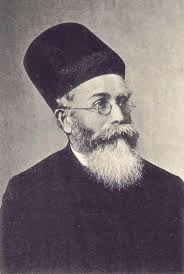
His speeches were calm, clear, and courageous. He used facts, figures, and ethical arguments to dismantle colonial narratives.
🧠 Demanding Indian Self-Rule
Dadabhai Naoroji was among the first leaders to demand Swaraj (self-rule)—not as a distant dream, but as a democratic necessity. He argued that India’s future depended on:
- Indian participation in legislative councils
- Economic autonomy and fair trade policies
- Educational empowerment for all communities
- Respect for Indian culture and identity
His vision of self-rule wasn’t violent—it was visionary. He believed in constitutional reform, dialogue, and moral persuasion.
🔍 Impact on British and Indian Politics
Dadabhai Naoroji’s presence in Parliament had ripple effects:
- In Britain, it humanized India’s struggle, making it harder to ignore
- In India, it validated moderate politics, encouraging civic engagement
- In the Congress, it strengthened calls for reform, influencing future resolutions
- Among youth, it sparked political awareness, planting seeds for future activism
He proved that one voice, backed by truth, could challenge an empire.
🌍 A Global Indian with a Grounded Mission
Even while serving in Britain, Dadabhai Naoroji remained deeply connected to India. He continued writing, mentoring, and advocating for Indian causes. His dual identity—as a British MP and Indian patriot—was a strategic asset.
He wasn’t just representing a constituency. He was representing a continent.
🔥 Emotional Undercurrent: Courage in the Chamber
Imagine the scene.
A lone Indian, standing in the House of Commons, surrounded by colonial pride, saying: “You are draining my country. You are denying my people. You must change.”
Dadabhai Naoroji didn’t flinch. He didn’t falter. He stood with dignity, intellect, and unwavering resolve.
His presence was a protest. His words were a promise.
🏁 Final Reflection
The years 1892 to 1895 were a turning point in India’s freedom journey. Dadabhai Naoroji, as the first Indian MP, gave India a voice in the empire’s most powerful institution.
He didn’t just occupy a seat. He occupied a moral high ground.
His legacy reminds us that representation is resistance, that truth is power, and that justice begins with being heard.
He wasn’t just a politician. He was a pioneer.
Sources:
Bing Search – Dadabhai Naoroji MP Finsbury Central
Vajiram & Ravi – Biography and Legacy
📍 1906 — Dadabhai Naoroji’s Final Presidential Call: Swaraj for India
🕰️ A Veteran Returns to Lead
By 1906, Dadabhai Naoroji was already a legend. He had served as Congress President twice before—in 1886 and 1893. He had exposed colonial exploitation through his Drain Theory, represented India in the British Parliament, and mentored generations of reformers. Yet, at the age of 81, he returned once more to lead the Indian National Congress—this time with a message that would echo through history.
His election as Congress President for the third time wasn’t just ceremonial. It was symbolic. It was a passing of the torch—from moderate reform to assertive nationalism. And Dadabhai Naoroji, the Grand Old Man of India, was ready to light the flame.
🏛️ The 1906 Calcutta Session: A Turning Point
The Calcutta session of the Indian National Congress in 1906 was unlike any before. The political climate had changed. The partition of Bengal had triggered mass protests. The Swadeshi movement was gaining momentum. Young leaders like Bal Gangadhar Tilak, Bipin Chandra Pal, and Lala Lajpat Rai were pushing for more radical action.
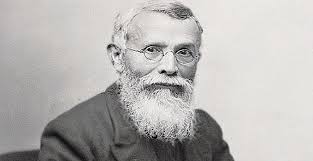
In this charged atmosphere, Dadabhai Naoroji stood before the nation and declared: “Swaraj is the goal.”
This was the first time the word Swaraj (self-rule) was officially adopted by the Congress as its objective. It was a seismic shift—from requesting reforms to demanding autonomy.
📣 What Swaraj Meant to Dadabhai Naoroji
For Dadabhai Naoroji, Swaraj wasn’t just a political slogan. It was a moral imperative. He defined it as self-government within the British Empire, similar to dominion status enjoyed by Canada or Australia. But the spirit behind it was unmistakable: India must govern itself.
He believed Swaraj would:
- Restore economic justice
- Ensure political representation
- Protect Indian culture and dignity
- Empower every citizen, not just the elite
His call for Swaraj was rooted in decades of study, struggle, and service. It was not born of anger—it was born of truth.
🔍 Impact on the Freedom Movement
Dadabhai Naoroji’s 1906 declaration had profound consequences:
- It gave the Congress a clear goal—Swaraj became the rallying cry for future movements
- It bridged the gap between moderates and extremists, uniting them under a common vision
- It inspired leaders like Mahatma Gandhi, who would later redefine Swaraj as spiritual and political freedom
- It marked the beginning of mass political awakening, where ordinary Indians began to see themselves as agents of change
His words didn’t just move minds—they moved history.
🌍 A Legacy of Leadership
Even in his final term as Congress President, Dadabhai Naoroji remained committed to constitutional methods, dialogue, and ethical politics. He didn’t believe in violence. He believed in values.
His leadership in 1906 was a masterclass in grace, wisdom, and strategic clarity. He didn’t dominate the stage—he elevated it. He didn’t silence dissent—he shaped it.
And through it all, he reminded India that freedom begins with self-belief.
🔥 Emotional Undercurrent: The Last Roar of a Gentle Giant
Imagine the moment.
An 81-year-old man, frail in body but fierce in spirit, standing before a restless nation, saying: “We must govern ourselves.”
No theatrics. No threats. Just truth.
Dadabhai Naoroji didn’t need to shout. His legacy spoke louder than any voice. His declaration of Swaraj was not just a political statement—it was a spiritual awakening.
He gave India its first clear dream. And he gave that dream dignity.
🏁 Final Reflection
The year 1906 was a milestone in India’s journey to freedom. Dadabhai Naoroji, in his third and final term as Congress President, gave the movement its soul: Swaraj.
He didn’t just lead a session. He led a shift. From reform to resistance. From silence to speech. From submission to self-rule.
His legacy reminds us that age does not dim vision, and that truth, when spoken with conviction, can shape a nation’s destiny.
He wasn’t just the Grand Old Man of India. He was the first architect of Swaraj.
Sources:
Testbook – INC 1906 Calcutta Session
Harvard Mittal Institute – Swaraj and Indian Nationalism
📍 1917 — The Final Chapter of Dadabhai Naoroji: A Legacy That Still Speaks
🕰️ June 30, 1917 — A Nation Pauses
On June 30, 1917, in the city of Bombay, India lost one of its most luminous minds. Dadabhai Naoroji, aged 91, passed away quietly—leaving behind not just memories, but a movement. His death marked the end of an era, but the beginning of a legacy that would continue to shape India’s destiny.
There were no grand ceremonies. No loud farewells. But across the country, hearts bowed in silent tribute. The man who had taught India to think, to question, and to demand justice had taken his final breath.
🧠 A Life of Intellectual Resistance
Dadabhai Naoroji’s greatest weapon was his mind. He didn’t fight with swords—he fought with statistics, speeches, and scholarly critique. His Drain Theory exposed how British colonial policies systematically extracted India’s wealth. He proved that poverty in India wasn’t natural—it was manufactured.
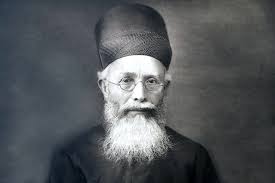
His writings weren’t just academic—they were revolutionary. He turned economics into activism. He gave Indian nationalists the intellectual tools to challenge empire with evidence, not emotion.
Even in his final years, Dadabhai Naoroji remained a beacon of reason. He mentored younger leaders, reviewed policy drafts, and continued to advocate for economic justice. His resistance was lifelong—and it was always rooted in truth.
📣 A Voice That Awakened a Nation
Dadabhai Naoroji wasn’t just a thinker—he was a political awakener. From his early days as a professor to his historic election to the British Parliament, he carried India’s voice into spaces where it had never been heard.
He served as President of the Indian National Congress three times, and in 1906, he gave the movement its soul: Swaraj. He was the first to declare that India must govern itself. That self-rule was not a dream—it was a right.
His speeches were calm but cutting. His presence was quiet but commanding. He didn’t stir crowds with slogans—he stirred minds with clarity.
🔍 The Final Years: Wisdom Without Wrath
In the last decade of his life, Dadabhai Naoroji withdrew from active politics but remained deeply engaged. He wrote letters, advised reformers, and reflected on India’s future. He believed that the next generation would carry the torch—and he trusted them to do so with courage and conscience.
He didn’t seek monuments. He didn’t chase titles. He lived simply, surrounded by books, thoughts, and the quiet satisfaction of a life well lived.
His passing in 1917 was not a loss—it was a legacy fulfilled.
🌍 What He Left Behind
Dadabhai Naoroji’s legacy is vast and vital. He left behind:
- A blueprint for economic critique that still informs policy debates
- A tradition of constitutional resistance that shaped India’s democratic ethos
- A culture of intellectual activism that inspired leaders like Gandhi, Nehru, and Gokhale
- A belief that truth, when spoken with conviction, can challenge any empire
He didn’t just fight for freedom. He defined its foundations.
🔥 Emotional Undercurrent: The Quiet Flame
Imagine the final moments.
A man who had stood in Parliament, challenged colonial economists, mentored revolutionaries, and declared Swaraj—now resting in silence.
But that silence wasn’t empty. It was full of echoes.
Echoes of lectures in Bombay.
Echoes of debates in London.
Echoes of dreams whispered to young freedom fighters.
Dadabhai Naoroji didn’t fade. He became a flame—passed from hand to hand, heart to heart.
🏁 Final Reflection
The year 1917 marked the physical departure of Dadabhai Naoroji, but his spirit never left. His ideas still live in every demand for justice, every call for representation, every critique of exploitation.
He taught India that freedom begins with thought. That resistance begins with reason. That dignity begins with dialogue.
He wasn’t just the Grand Old Man of India. He was the first architect of Indian nationalism.
And though he passed away in Bombay, his legacy walks with India—every day, in every voice that dares to speak truth to power.
🏛️ Dadabhai Naoroji’s Legacy: The Mind That Moved a Nation
🌟 The Grand Old Man of India
History rarely produces minds that are both gentle and revolutionary. Dadabhai Naoroji, born in 1825, was one such soul. Reverently called the “Grand Old Man of India,” he wasn’t just a title-holder—he was a torchbearer. His wisdom, patience, and principled leadership earned him this name not because of age, but because of impact.
He stood for India when few dared to speak. He reasoned with empires when others remained silent. And he did it all with grace, intellect, and unwavering belief in India’s potential.
His legacy is not just in what he said—but in what he made others believe: that India deserved dignity, justice, and self-rule.
📉 The Drain Theory: Truth as Resistance
Among Dadabhai Naoroji’s most powerful contributions was his pioneering of the Drain Theory—a bold economic critique that exposed how British colonial policies siphoned wealth from India.
He argued that India’s poverty was not natural—it was engineered. Through meticulous analysis, he showed how British rule extracted resources, taxed unfairly, and repatriated profits, leaving India economically hollow.
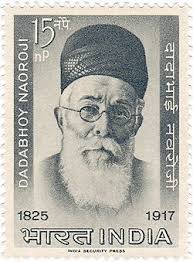
His book Poverty and Un-British Rule in India became a cornerstone of economic nationalism. It wasn’t just a theory—it was a revelation. It gave Indian leaders a framework to understand exploitation and a language to demand change.
Dadabhai Naoroji didn’t just write about injustice—he quantified it. And in doing so, he turned economics into activism.
🔥 Inspiring Generations: Gandhi, Tilak, Gokhale
Great leaders don’t just lead—they leave footprints. Dadabhai Naoroji’s ideas, ethics, and courage inspired three generations of freedom fighters:
- Mahatma Gandhi called him a mentor and credited him with shaping his understanding of Swaraj and economic justice.
- Bal Gangadhar Tilak, though more radical in approach, respected Naoroji’s intellectual clarity and moral compass.
- Gopal Krishna Gokhale, a moderate reformer, was deeply influenced by Naoroji’s belief in constitutional methods and education.
These leaders didn’t just admire him—they built upon his foundation. His legacy became their launchpad. His Drain Theory became their rallying cry. His vision of self-rule became their mission.
Dadabhai Naoroji didn’t just inspire minds—he ignited movements.
📚 Champion of Education, Equality, and Representation
Long before political slogans and mass protests, Dadabhai Naoroji believed in the quiet power of education. He was one of the first Indian professors in British India, teaching mathematics and natural philosophy at Elphinstone College.
But his vision went beyond classrooms. He advocated for education for women, marginalized communities, and vernacular learning. He believed that knowledge was the first step toward freedom.
He also stood for equality—not just in theory, but in practice. He challenged social hierarchies, supported reformist movements, and promoted rational thought over blind tradition.
And on the global stage, he demanded Indian representation. As the first Indian elected to the British Parliament, he spoke for millions who had no voice. He didn’t beg for inclusion—he argued for it. With dignity. With data. With conviction.
🔥 Emotional Undercurrent: Legacy with Soul
Imagine the courage it took.
To speak against an empire.
To challenge economic injustice with numbers.
To mentor revolutionaries while remaining rooted in peace.
To believe in India when the world dismissed it.
Dadabhai Naoroji’s legacy is not just intellectual—it’s emotional. It’s the story of a man who chose truth over comfort, reason over rage, and service over silence.
He didn’t seek fame. He sought fairness. And in doing so, he became immortal.
🏁 Final Reflection
Dadabhai Naoroji’s legacy is a tapestry woven with intellect, integrity, and inspiration. He gave India its first economic critique, its first voice in British politics, and its first declaration of Swaraj.
He mentored minds, moved movements, and modeled what leadership should look like—calm, courageous, and committed.
Today, his ideas still echo in every demand for justice, every call for representation, and every belief that India deserves more.
He wasn’t just the Grand Old Man of India. He was the moral architect of Indian nationalism.
🏁 Conclusion — Dadabhai Naoroji: The Mind That Made India Think
In the vast canvas of India’s freedom struggle, Dadabhai Naoroji stands not as a warrior of noise, but as a guardian of thought. He didn’t raise slogans—he raised standards. He didn’t incite rebellion—he inspired reason.
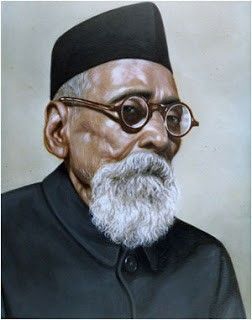
From pioneering the Drain Theory to becoming the first Indian elected to the British Parliament, from presiding over the Indian National Congress to declaring Swaraj as India’s rightful goal, Dadabhai Naoroji shaped the intellectual and moral foundation of Indian nationalism.
He believed in education as empowerment, in economic justice as resistance, and in constitutional reform as revolution. His legacy is not just in speeches or books—it’s in every Indian who dares to think critically, speak truth, and demand dignity.
He was the Grand Old Man of India, but his ideas remain forever young.
And as India continues to evolve, his voice still whispers through history:
“Freedom begins with thought. Justice begins with truth. And self-rule begins with self-respect.”
Dadabhai Naoroji didn’t just live in his time—he lives in ours.
Internal Links: 1.https://historyverse7.com/shivaji-maharaj/ 2.https://historyverse7.com/ashfaqulla-khan/
External Links:1. https://en.wikipedia.org/wiki/Dadabhai_Naoroji 2.https://www.britannica.com/biography/Dadabhai-Naoroji
📘 FAQ: Understanding Dadabhai Naoroji
1. What did Dadabhai Naoroji teach India about dignity before freedom?
Ans: He taught that self-respect must precede self-rule. By entering British Parliament in traditional attire, he proved that Indians didn’t need to mimic the West to earn a voice—they needed conviction.
2. How did Naoroji’s silence become a form of resistance?
Ans: He rarely raised his voice, but his data spoke louder than protests. His Drain Theory wasn’t shouted—it was calculated, printed, and delivered with precision. Silence, for him, was strategy.
3. Why did Dadabhai Naoroji never call himself a revolutionary?
Ans: Because he believed revolutions begin in the mind. He didn’t break chains—he exposed them. His rebellion was intellectual, his weapon was truth, and his battlefield was Parliament.
4. What was Naoroji’s greatest act of mentorship that history rarely mentions?
Ans: He didn’t just mentor Gandhi—he mentored India’s self-image. By proving that an Indian could challenge empire with reason, he gave every future leader permission to believe in their own worth.
5. If Naoroji were alive today, what would he say about India’s progress?
Ans: He’d ask: “Are we still measuring our worth by foreign standards, or have we learned to value our own?” His legacy isn’t just about independence—it’s about introspection.
Share this content:


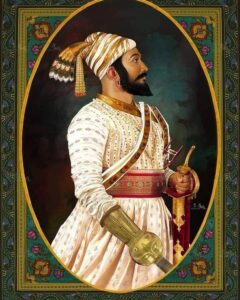
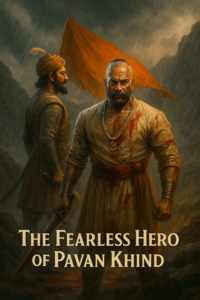
Very nice👍👌
The first Indian Member of British Parliament….🚩🚩